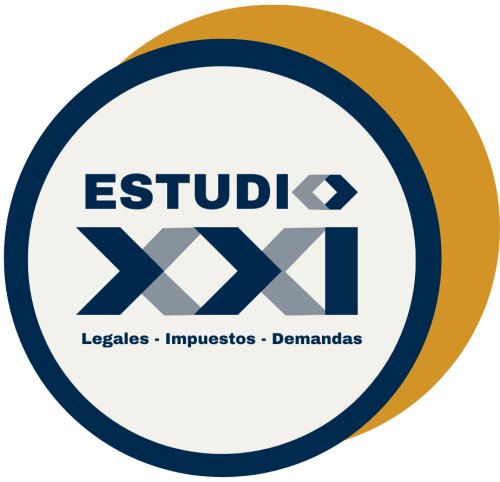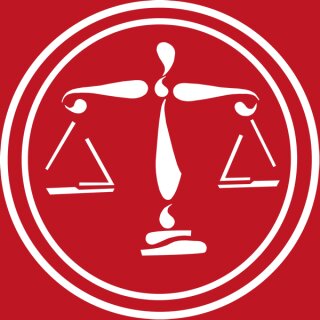Best Family Lawyers in Asunción
Share your needs with us, get contacted by law firms.
Free. Takes 2 min.
Free Guide to Hiring a Family Lawyer
List of the best lawyers in Asunción, Paraguay
About Family Law in Asunción, Paraguay
Family law in Asunción, Paraguay, is a comprehensive legal framework that addresses matters related to family relationships, responsibilities, and rights. This area of law covers marriage, civil unions, domestic partnerships, divorce, child custody, adoption, and inheritance. Paraguayan family law aims to protect the rights and welfare of all family members, with a strong emphasis on the best interests of children. The legal system in Paraguay is based on a civil law structure, which involves statutory laws codified into legal codes.
Why You May Need a Lawyer
Individuals may need legal assistance in family matters for various reasons, including:
- Divorce and Separation: Navigating the legal processes of ending a marriage or partnership, including property division and alimony.
- Child Custody and Support: Establishing or modifying custody arrangements and ensuring the adequate support for children.
- Adoption: Understanding the legal procedures and requirements for adopting a child, whether domestically or internationally.
- Domestic Abuse: Seeking protection and legal remedies in situations involving domestic violence or abuse.
- Inheritance Disputes: Resolving conflicts related to the distribution of estate and inheritance matters.
A lawyer specializing in family law can provide invaluable guidance, representation, and support through these often complex and emotionally charged legal processes.
Local Laws Overview
Family law in Paraguay is governed primarily by the national Civil Code. Key local legal aspects include:
- Marriage: Requires civil registration. The legal age for marriage is 18, but exceptions can be made with parental consent.
- Divorce: Can be sought on grounds such as mutual consent, adultery, abuse, or abandonment.
- Child Custody: Based on the principle of the best interests of the child, with potential for shared custody arrangements.
- Domestic Violence: Strong legal protections exist, including restraining orders and support services for victims.
- Inheritance Laws: Follow the principles of testamentary freedom and legal succession, ensuring rights for children and spouses.
Frequently Asked Questions
What is the process for filing for divorce in Paraguay?
Divorce proceedings in Paraguay require filing a petition at a local family court. Grounds for divorce must be specified, and if children are involved, custody arrangements must be considered.
How is child custody determined?
Child custody is determined based on the best interests of the child, taking into account factors such as the child's relationship with each parent, stability, and the child’s needs.
Can same-sex couples marry in Paraguay?
As of the latest available information, Paraguay does not legally recognize same-sex marriages. However, the human rights landscape is evolving, and advocacy for LGBTQ+ rights is ongoing.
What legal protections are there for victims of domestic violence?
Victims of domestic violence can seek protective orders, legal assistance, and social services aimed at ensuring their safety and that of their children.
How can I adopt a child in Paraguay?
Adoption involves a legal process that includes evaluation by social services, court approval, and compliance with international regulations if it’s an international adoption.
What rights do children have in inheritance issues?
Children have guaranteed rights to inherit from their parents under Paraguayan law, ensuring they receive a portion of the estate, regardless of the presence of a will.
Is mediation available for family disputes?
Yes, mediation services are available and encouraged as a way to amicably resolve family disputes, potentially reducing the need for prolonged court proceedings.
What is the role of the Defensoría de la Niñez y Adolescencia?
This is a governmental body tasked with protecting the rights of children and adolescents in legal matters, offering support and ensuring child welfare in legal proceedings.
How can property be divided during a divorce?
Property division aims to equitably distribute marital assets and liabilities, considering contributions by each partner and future needs through legal negotiation or court decision.
What can I do if I disagree with a court's family law decision?
You can appeal the decision through higher courts if you believe the ruling was legally incorrect based on process or application of law.
Additional Resources
For further assistance, the following resources may be helpful:
- Ministerio de la Mujer: Offers resources and support for women, especially in cases of domestic violence.
- Defensoría del Pueblo: Provides general legal assistance and advocacy for human rights, including family law guidance.
- Centro de Apoyo Familiar: Offers counseling and mediation services to resolve family conflicts.
- Judicial Services: Local family courts can provide information and guidance on legal procedures.
Next Steps
If you need legal assistance in family law, consider taking the following steps:
- Identify Your Legal Needs: Clearly define the issue you are facing and what you hope to achieve.
- Consult a Lawyer: Seek a qualified family law attorney in Asunción who can offer specialized legal advice.
- Gather Documentation: Prepare all relevant documents, including identification, marriage or divorce certificates, and financial statements.
- Explore Mediation Services: Consider mediation as a first step to resolving conflicts amicably.
- Utilize Resources: Contact appropriate governmental bodies or organizations for additional support and information.
Lawzana helps you find the best lawyers and law firms in Asunción through a curated and pre-screened list of qualified legal professionals. Our platform offers rankings and detailed profiles of attorneys and law firms, allowing you to compare based on practice areas, including Family, experience, and client feedback.
Each profile includes a description of the firm's areas of practice, client reviews, team members and partners, year of establishment, spoken languages, office locations, contact information, social media presence, and any published articles or resources. Most firms on our platform speak English and are experienced in both local and international legal matters.
Get a quote from top-rated law firms in Asunción, Paraguay — quickly, securely, and without unnecessary hassle.
Disclaimer:
The information provided on this page is for general informational purposes only and does not constitute legal advice. While we strive to ensure the accuracy and relevance of the content, legal information may change over time, and interpretations of the law can vary. You should always consult with a qualified legal professional for advice specific to your situation.
We disclaim all liability for actions taken or not taken based on the content of this page. If you believe any information is incorrect or outdated, please contact us, and we will review and update it where appropriate.
Browse family law firms by service in Asunción, Paraguay
Asunción, Paraguay Attorneys in related practice areas.












